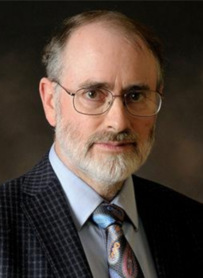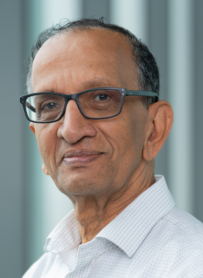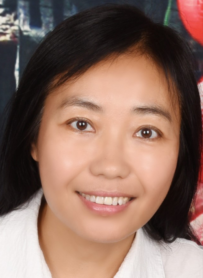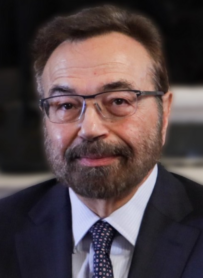Speaker: Tom Dietterich
Title: Integrating machine learning into safety-critical systems
Date: July 9, 2024; 9:00 am – 10:00 am
Abstract:
The impressive new capabilities of systems created using deep learning are encouraging engineers to apply these techniques in safety-critical applications such as medicine, aeronautics, and self-driving cars. However, there is a gap between the existing practice of machine learning engineering and the world of safety engineering. The vast majority of applied machine learning treats the training data as a given. Indeed, the data are often being repurposed, having been collected for some other reason. The data are assumed to be a sample from some stationary distribution, and the learned model is only expected to do well on new data drawn from that same distribution. A consequence is that the domain of competence of the model is only defined implicitly by the training data. Safety engineering, in contrast, explicitly specifies an operational domain, identifies the potential harms and their severity, and seeks to ensure that the risk (defined as a combination of severity and frequency) of the harms is acceptably small. This talk will propose a new scenario-driven methodology for engineering safe ML components, inspired in part by developments in the German automotive industry and describe the new research challenges that it raises.
Bio:

Dr. Dietterich (AB Oberlin College 1977; MS University of Illinois 1979; PhD Stanford University 1984) is Distinguished Professor Emeritus in the School of Electrical Engineering and Computer Science at Oregon State University. Dietterich is one of the pioneers of the field of Machine Learning and has authored more than 220 refereed publications and two books. His current research topics include robust artificial intelligence, robust human-AI systems, and applications in sustainability.
Dietterich has devoted many years of service to the research community and was recently given the ACML Distinguished Contribution and the AAAI Distinguished Service awards. He is a former President of the Association for the Advancement of Artificial Intelligence and the founding president of the International Machine Learning Society. Other major roles include Executive Editor of the journal Machine Learning, co-founder of the Journal for Machine Learning Research, and program chair of AAAI 1990 and NIPS 2000. He currently oversees the Computer Science categories at arXiv.
Speaker: Bhaskar D. Rao
Title: Insights Into Sparse Signal Recovery Algorithms Using Array Processing Principles
Date: July 9, 2024; 2:30 pm – 3:30 pm
Abstract:
Many sparse signal recovery (SSR) algorithms have been developed to solve linear inverse problems using either an optimization framework involving regularization or a Bayesian framework with appropriate priors. The algorithms involved are based on rigorous optimization or statistical principles and are well accepted, though can be more difficult to interpret. On the other hand, array processing principles such as adaptive beamforming, interference nulling, SINR maximization, etc. are quite intuitive to understand and can provide considerable engineering insight. I will show how array processing principles can provide insight into SSR algorithms by using them to compare the popular Orthogonal Matching Pursuit (OMP) Algorithm with the sequential Sparse Bayesian learning algorithm. OMP sequentially selects columns from the dictionary and computes a residual that is orthogonal to the columns already selected. We will provide a Null steering beamforming interpretation to OMP, and this will provide insights, identify limitations, and suggest options for improvement. As a contrast to the OMP, we will also study the sequential sparse Bayesian learning method which sequentially selects columns maximizing the Gaussian likelihood function. We will apply a Minimum Variance Distortionless Response (MVDR) beamformer interpretation to the selection approach making the algorithm more transparent, revealing new features, and providing a clear contrast to OMP. Similar insights can be also obtained for other SSR algorithms and will be touched upon.
Bio:

Bhaskar D. Rao is a pioneer in the theory and use of sparsity in signal processing applications. Since co-authoring the first paper on the seminal FOCUSS algorithm in 1992, he has been driving the field of sparsity forward, including co-organizing the first special session on sparsity at ICASSP 1998 entitled “SPEC-DSP: Signal Processing with Sparseness Constraint”.
He received his B.Tech. degree in Electronics and Electrical Communication Engineering from the Indian Institute of Technology, Kharagpur, India, in 1979 and his M.S. and Ph.D. degrees from the University of Southern California, Los Angeles in 1981 and 1983, respectively. He has been teaching and conducting research at the University of California in San Diego, La Jolla since 1983, where he is currently a Professor Emeritus and Distinguished Professor of the Graduate Division in the Electrical and Computer Engineering department. He has also been the holder of the Ericsson Endowed Chair in Wireless Access Networks and Distinguished Professor until 2023 and the Director of the Center for Wireless Communications (2008-2011).
Professor Rao’s research interests are in the areas of digital signal processing, estimation theory, and optimization theory, with applications to digital communications, speech signal processing, and biomedical signal processing. His work has received several paper awards, including the 2012 Signal Processing Society (SPS) best paper award for the paper “An Empirical Bayesian Strategy for Solving the Simultaneous Sparse Approximation Problem,” with David P. Wipf and the Stephen O. Rice Prize paper award in the field of communication systems for the paper “Network Duality for Multiuser MIMO Beamforming Networks and Applications,” with B. Song and R. L. Cruz.
Professor Rao was elected fellow of IEEE in 2000 for his contributions to the statistical analysis of subspace algorithms for harmonic retrieval. He received the IEEE Signal Processing Society Technical Achievement Award in 2016 and was the recipient of the 2023 IEEE SPS Norbert Wiener Society Award. He has been a member of the Statistical Signal and Array Processing Technical Committee, the Signal Processing Theory and Methods Technical Committee, the Communications Technical Committee of the IEEE Signal Processing Society, SPS Fellow Evaluation Committee (2023-2024) and was the chair of the Machine Learning for Signal Processing Technical Committee (2019-2020).
Speaker: Zhi Tian
Title: Multi-channel Spectrum Monitoring over distributed networks
Date: July 10, 2024; 9:00 am – 10:00 am
Abstract:
As data-intensive applications proliferate across wireless networks, the use of radio spectrum has intensified, bringing forth new demands and challenges in spectrum access and monitoring. Often, a network of spectrum sensors is deployed to gain spectrum awareness across time, frequency, and space, collaboratively performing tasks ranging from multi-channel spectrum sensing to large-scale radio map estimation. For wireless systems, these tasks face distinct challenges such as wideband sensing and distributed collaboration among local sensors with limited sensing range. This talk highlights some recent advances and trends in spectrum monitoring, covering sparse sensing from compressive data to deep learning from abundant spectrum data. From a signal processing perspective, a compressive covariance sensing framework is presented for wideband spectrum sensing from compressive measurements, when the signal acquisition costs are high. From a machine learning standpoint, a distributed multi-task learning architecture is introduced for wideband spectrum occupancy detection and radio map estimation under partial sensory observations. This architecture enables heterogeneous feature extraction among collaborative sensors, enhancing spectrum monitoring capabilities.
Bio:

Zhi Tian has been a Professor in the Electrical and Computer Engineering Department of George Mason University since 2015. Previously she was on the faculty of Michigan Technological University, and served a 3-year term as Program Director at the US National Science Foundation. Her research interests lie in distributed machine learning, wireless communications, and statistical signal processing. She is an IEEE Fellow. She was a Member-at-Large of the Signal Processing Society Board of Governors (2019-2021). She was General Co-Chair of the IEEE GlobalSIP Conference in 2016 and the IEEE SPAWC Workshop in 2023. She served as an IEEE Distinguished Lecturer for both the IEEE Communications Society and the IEEE Vehicular Technology Society. She is the Editor-in-Chief for the IEEE Transactions on Signal Processing. She received the IEEE Communications Society TCCN Publication Award in 2018.
Speaker: Geert Leus
Title: Compressive and Sparse Array Processing
Date: July 10, 2024; 2:30 – 3:30 pm
Abstract:
Array processing has been a key area in the signal processing community for many decades. Generally, regular arrays have been considered but more recently there has been a growing interest in compressive and sparse arrays, fuelled by the trend to move to higher frequencies and higher apertures. Compressive and sparse arrays can reduce the hardware cost and power consumption and are hence attractive for applications such as massive multi-input multi-output communications, automotive radar, and acoustic imaging. In this talk, we establish the basic model for compressive and sparse array processing and discuss how to perform digital beamforming and direction of arrival (DoA) estimation for such arrays. Modern techniques are discussed that go beyond classical subspace-based methods, leveraging optimization theory and sparse signal processing. Furthermore, not only the standard signal-based processing is considered but also more advanced covariance-based techniques, allowing for an increased number of degrees of freedom. Throughout the talk we also discuss compressive and sparse array design, mainly aiming at maximizing identifiability. Yet in the last part of the talk we delve into performance-based sparse array design, which fits into the field of sparse sensing. Here both convex and submodular optimization methods will be presented to design optimal sparse arrays for DoA estimation.
Bio:

Geert Leus received the M.Sc. and Ph.D. degree in Electrical Engineering from the KU Leuven, Belgium, in June 1996 and May 2000, respectively. Geert Leus is now a Full Professor at the Faculty of Electrical Engineering, Mathematics and Computer Science of the Delft University of Technology, The Netherlands. His research interests are in the broad area of signal processing, with a specific focus on wireless communications, array processing, sensor networks, and graph signal processing. Geert Leus received the 2021 EURASIP Individual Technical Achievement Award, a 2005 IEEE Signal Processing Society Best Paper Award, and a 2002 IEEE Signal Processing Society Young Author Best Paper Award. He is a Fellow of the IEEE and a Fellow of EURASIP. Geert Leus was a Member-at-Large of the Board of Governors of the IEEE Signal Processing Society, the Chair of the IEEE Signal Processing for Communications and Networking Technical Committee, the Chair of the EURASIP Technical Area Committee on Signal Processing for Multisensor Systems, a Member of the IEEE Sensor Array and Multichannel Technical Committee, a Member of the IEEE Big Data Special Interest Group, a Member of the EURASIP Signal Processing for Communications and Networking Special Area Team, the Editor in Chief of the EURASIP Journal on Advances in Signal Processing, and the Editor in Chief of EURASIP Signal Processing. He was also on the Editorial Boards of the IEEE Transactions on Signal Processing, the IEEE Transactions on Wireless Communications, the IEEE Signal Processing Letters, and the EURASIP Journal on Advances in Signal Processing. Currently, he is a Member of the IEEE Signal Processing Theory and Methods Technical Committee and an Associate Editor of Foundations and Trends in Signal Processing.
Speaker: Georgios B. Giannakis
Title: Bayesian Optimization for Task Offloading and Resource Allocation in IoT
Date: July 11, 2024; 9:00 am – 10:00 am
Abstract:
Internet-of-Things (IoT) offers an intelligent infrastructure of networked smart wireless devices (WD) offering task-specific monitoring and control services. IoT’s unique features include heterogeneity, ubiquitous low-power devices, and unpredictable dynamics also due to human participation. In a general multi-server multi-user edge computing system, each WD has a computational task to execute and has to select binary (off)loading decisions, along with the analog-amplitude resource allocation variables in an online manner, with the goal of minimizing the overall energy-delay cost (EDC) with dynamic system states. While past works typically rely on the explicit expression of the EDC function, this plenary considers a setup, where in lieu of system state information, the EDC function is not available in analytical form, and instead only the function values at queried points are revealed. Towards tackling such a challenging online combinatorial problem with only bandit information, novel Bayesian optimization (BO) based approaches are put forth by leveraging the multi-armed bandit (MAB) framework. Per time slot, the discrete offloading decisions are first obtained via the MAB method, and the analog resource allocation variables are subsequently optimized using the BO selection rule. By exploiting both temporal and contextual information, two novel BO approaches, termed time-varying BO and contextual time-varying BO, are developed. Numerical tests validate the merits of the proposed BO approaches compared with contemporary benchmarks under different MEC network sizes.
Bio:

Georgios Giannakis received his Diploma in Electrical Engr. (EE) from the Ntl. Tech. U. of Athens, Greece, 1981. From 1982 to 1986 he was with the U. of Southern California (USC), where he received his MSc. in EE, 1983, MSc. in Mathematics, 1986, and Ph.D. in EE, 1986. He was with the U. of Virginia from 1987 to 1998, and since 1999 he has been with the U. of Minnesota (UMN), where he held an Endowed Chair of Telecommunications, served as director of the Digital Technology Center 2008-21, and he holds a UMN Presidential Chair in ECE.
His interests span the areas of statistical learning, communications, and networking – subjects on which he has published more than 495 journal papers, 805 conference papers, 26 book chapters, two edited books and two research monographs. Current research focuses on Data Science with applications to IoT, and power networks with renewables. He is the (co-) inventor of 36 issued patents, and the (co-)recipient of 10 best journal paper awards from the IEEE Signal Processing (SP) and Communications Societies, including the G. Marconi Prize. He received the IEEE-SPS Norbert Wiener Society Award (2019); EURASIP’s A. Papoulis Society Award (2020); Technical Achievement Awards from the IEEE-SPS (2000) and from EURASIP (2005); the IEEE ComSoc Education Award (2019); and the IEEE Fourier Technical Field Award (2015). He is a member of the Academia Europaea, Greece’s Academy of Athens, and Fellow of the National Academy of Inventors, the European Academy of Sciences, UK’s Royal Academy of Engineering, Life Fellow of IEEE, and EURASIP. He has served the IEEE in several posts, including that of a Distinguished Lecturer for the IEEE-SPS.
